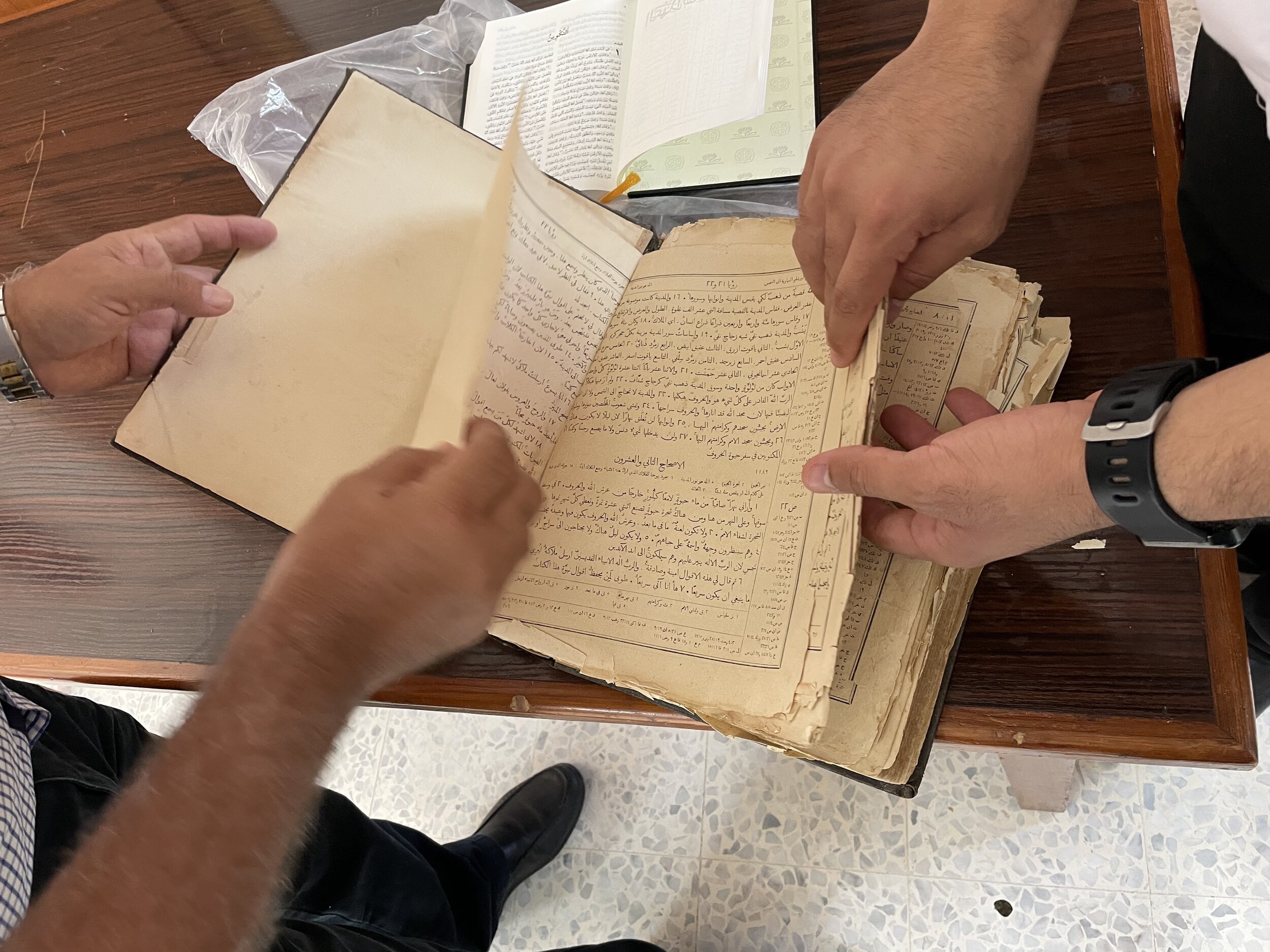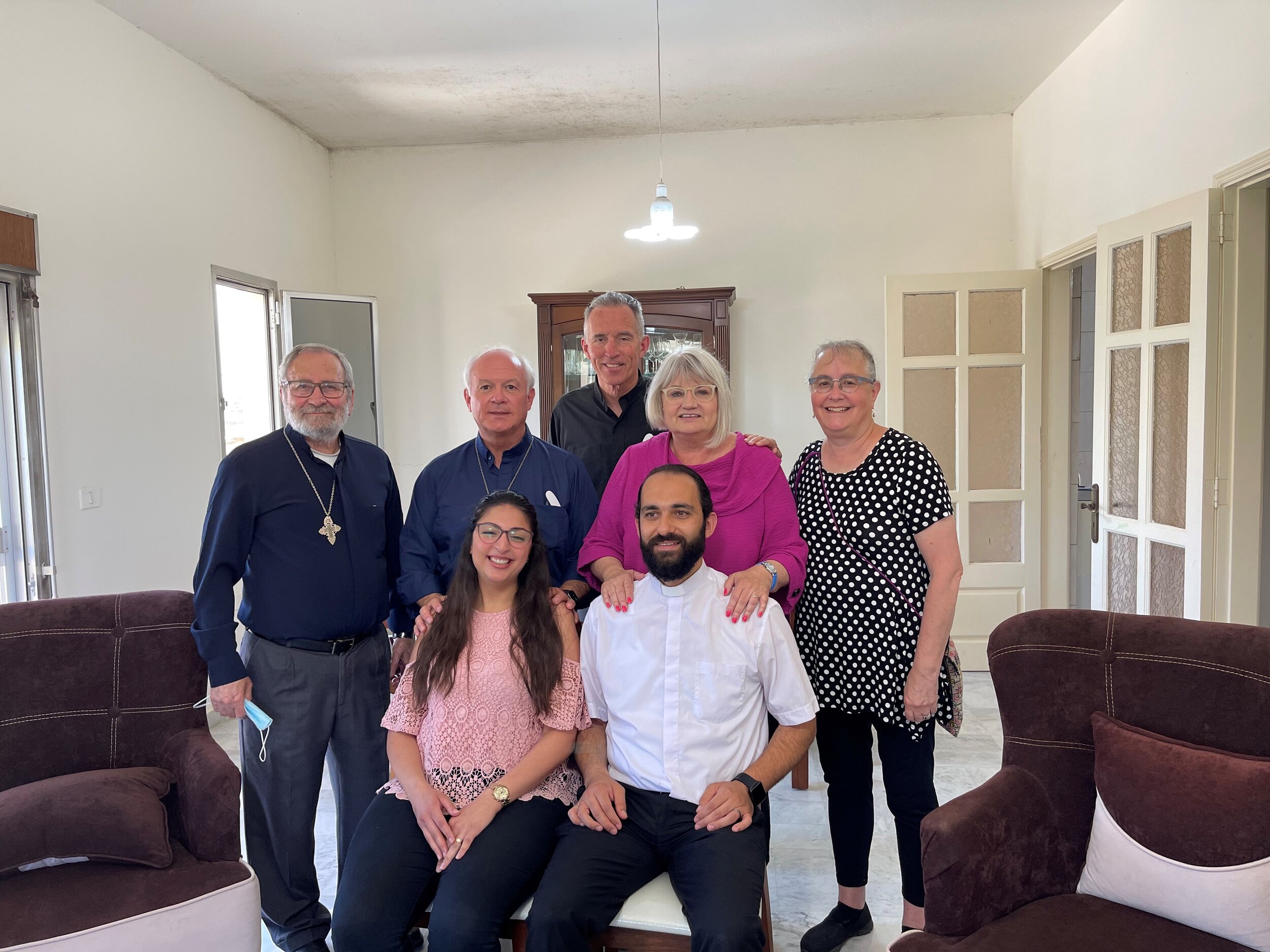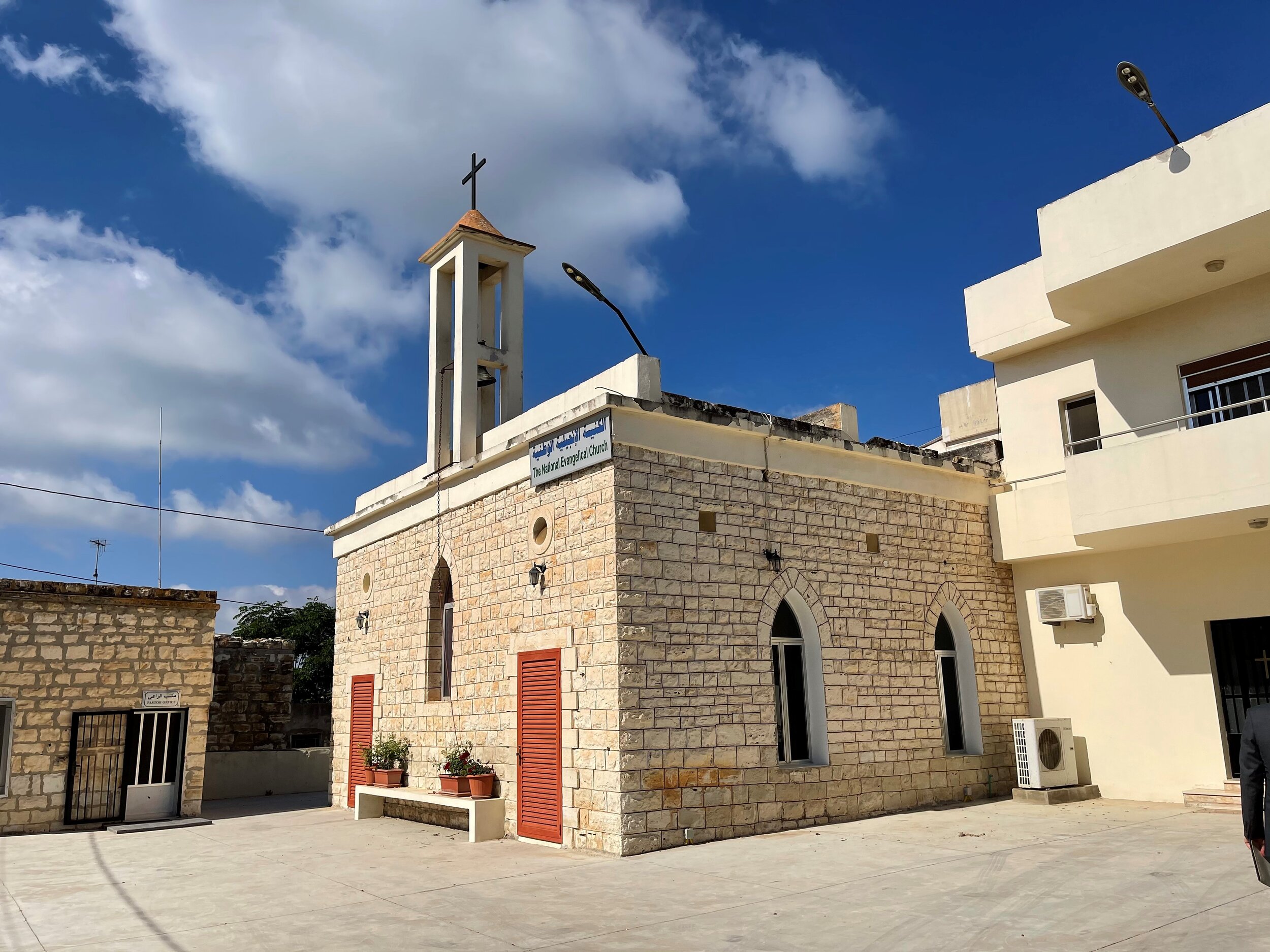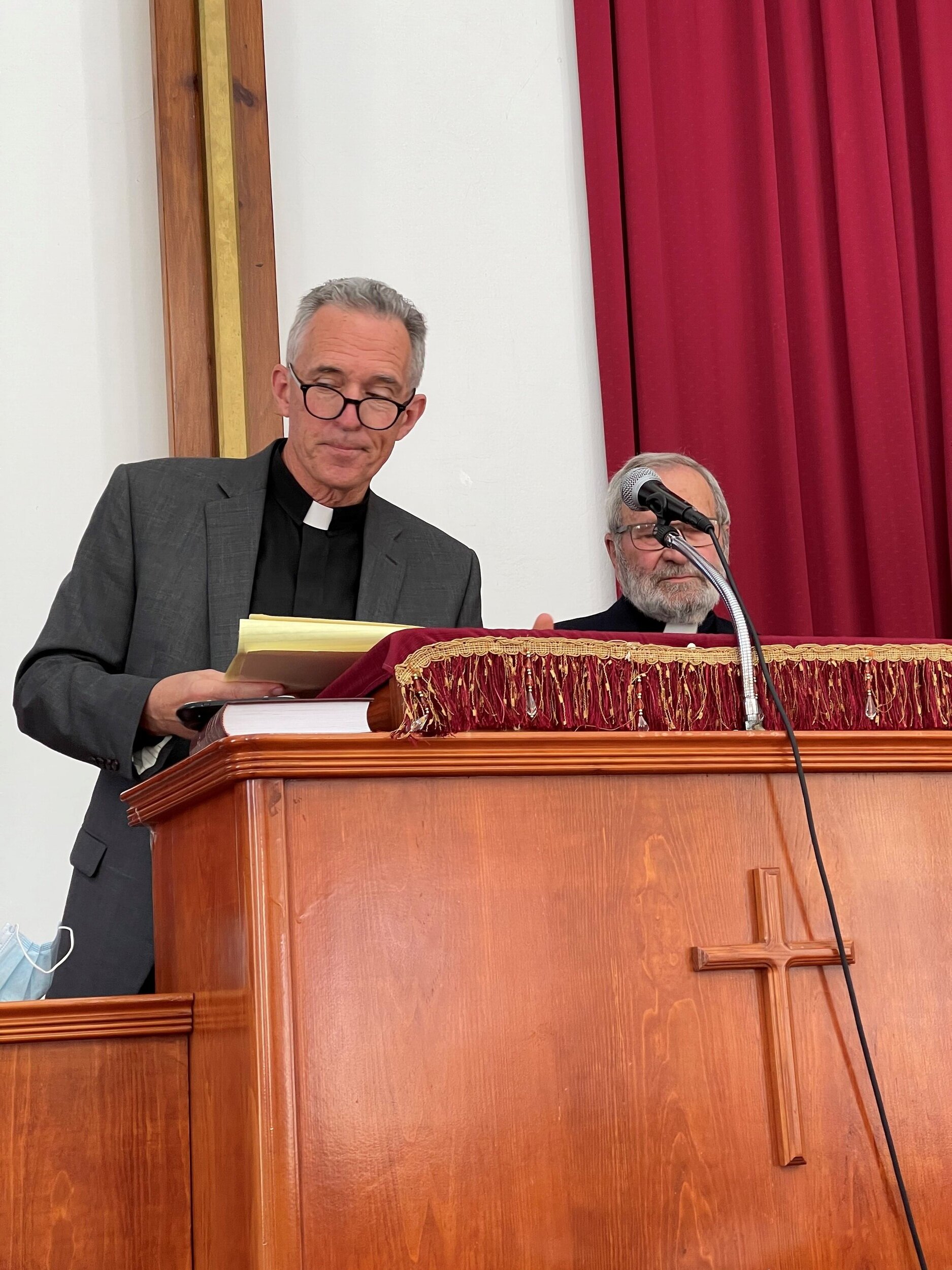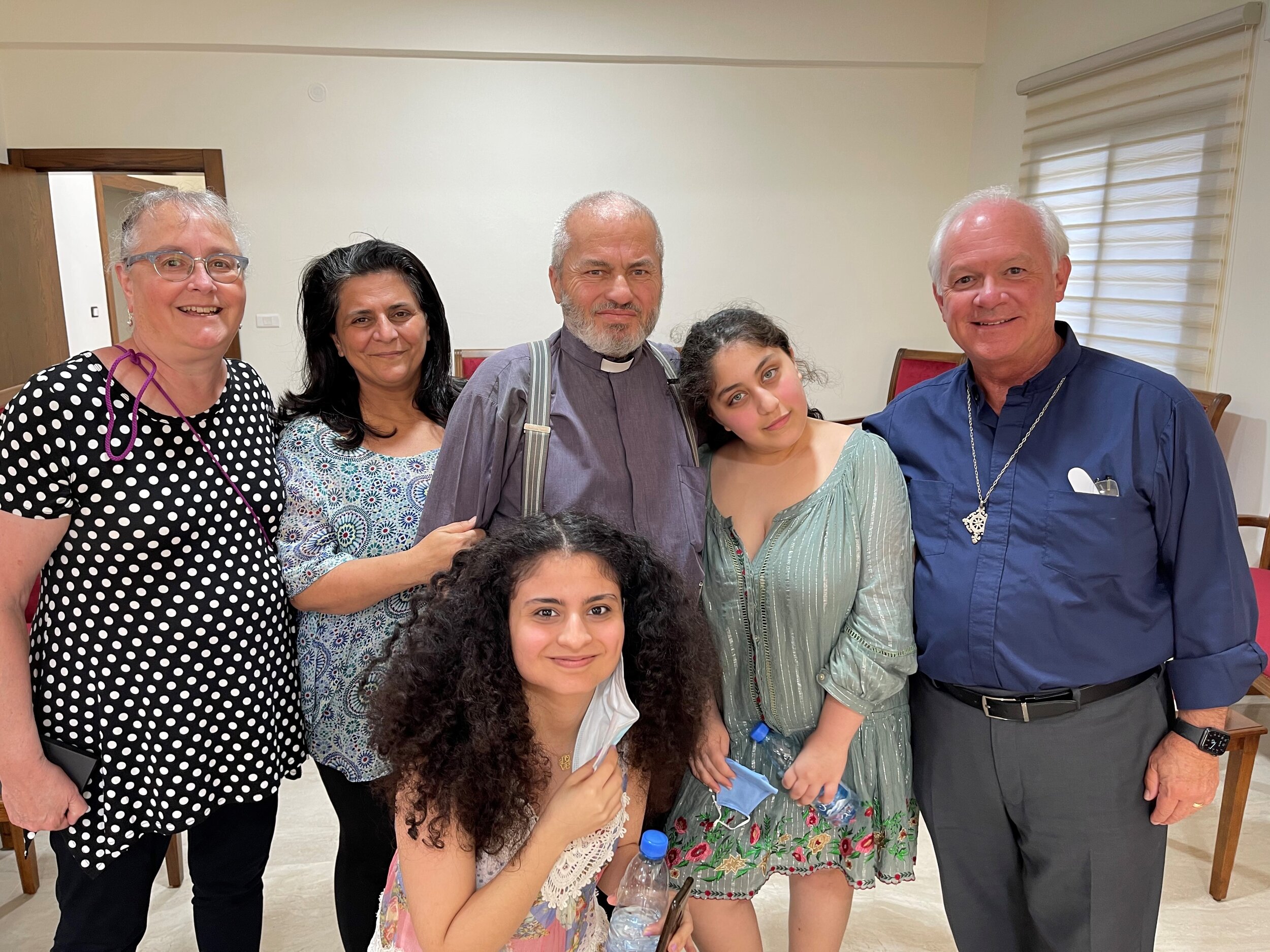Lebanon #11: Barnabas
Coming back from Aalma Ech-Chaab after worshipping there yesterday, I have struggled for a way to frame our Sunday. Upon waking up this morning, it came to me from Mark’s sermon about his friend Barnabas, from Acts 4:32-36. Check it out along with many stories of Barnabas and Paul as Luke tells their stories in Acts. And there was my frame: Luke. When I did a brief foray into a master’s program on ministry, I loved my New Testament professor who had spent much time in Syria. When Dr. Brubaker was teaching us on Acts, he asked if we could be a character in those stories, which would we choose. I chose Luke himself, because he was the recorder/storyteller, so to speak. That has been my joyful task on this journey.
As Mark explained it so eloquently, pausing as Nuhad translated into Arabic for this sweet congregation, Barnabas was patient with Paul, positive toward Paul, and persistent for Paul, and saw the potential in everyone. These characteristics define an encourager, and of course, Barnabas’ name means ‘son of encouragement.’
But before Mark preached to us today, we were met after the long and winding journey to this very southern spot in Lebanon, a place we needed permission to go, by Pastor Rabih Talib. Aalma is on the Mediterranean Sea, and you can see Israel from Rabih’s balcony. I wish I had the space and words to tell you about the events in this part of the country, but you should research and read them for yourselves. But I digress...
Rabih pointed out the small church and told us it was founded in 1867 by Cornelius Van Dyck, a Dutch reformed American missionary, who has had a profound impact on the church in the Arabic-speaking world. Among his many accomplishments (and you really should read about him), is the translation of the Bible into Arabic. It is still the same Bible used here today, and to prove this, Rabih opened his own Bible and compared it to passages in the very old and yellowed one in the fellowship hall of the church. Some of us have seen the original handwritten pages of Van Dyck’s, which are housed at the Near East School of Theology in a special room.
Rabih is himself a graduate of NEST, as are most of the pastors in the Synod of Syria and Lebanon. Not only is he a pastor of the Synod, (he is from Minyara in the far north where we were on our first weekend), he is the current editor of Al Nashrah, a publication of the Synod which covers the life of the church here, but also deep theological treatises, because this is a place of deep theological thinking and life. Standing in Rabih’s office, he pulled a bound issue of Nashrah off his shelf, dating to 1867. And the editor? Cornelius van Dyck! In the church founded by van Dyck who served as its first pastor, we stood with the current pastor and editor of Nashrah, holding this 150+-year-old volume. From one Luke to another, the story of Presbyterians in Lebanon and Syria is still being told, and like from one Barnabas to another, the encouragement is passed on to a new generation.
We walked through the old parts of Aalma with the elders of the church. On this circular journey back to the church, Rabih pointed out gardens that contained some of the 37,000 vegetable plants and 1,500 fruit trees that had been distributed to the people of this small community, all of whom are Christians, belonging to one of the three churches: the National Evangelical Church, Maronite Catholic, and Greek (Melkite) Catholic. We then had a relaxing lunch at a local restaurant, entertained by the children of Rabih and his wife Nadia, four-year-old Stephen, and eight-month-old Elora. Elora means “God is my light,” and in this place on the border, the light is welcome.
Returning to Beirut, we stopped at a most welcome spot to visit the church in Sidon, pastored for the past ten years by Mikhael Sbeit, a dear friend. And if we are continuing our connections here, which seems to be the theme of the day, Mikhael spent his early years after seminary leading the church in Aalma. I don’t know why I am always surprised about the intertwining of places and ministry and people here, but I love that. It is a living book of Acts!
After coffee and sweets with Mikhael’s family in the form of his wife Nadej, oldest daughter Joy (soon to graduate from Lebanese American University in Beirut with her industrial engineering degree), and youngest child Nour, who has learned to crochet and bake during the quarantine (she made the cake!), we walked over to the church for some final precious moments. We met a mixed Iraqi/Iranian family of refugees being taken care of by this church and gathered around the piano while our dear friend Elder Elham played for us. Singing “What a Friend We Have in Jesus,” Arabic and English mixing together, we had come full circle.
With patience, positivity, and persistence, we felt encouraged by each other, Barnabas to Paul, Van Dyck to Mikhael to Rabih, reveling in the knowledge that God in Jesus sees the potential in each of us to carry on, sharing the journey with the living Christ.
Julie Burgess, for the team

